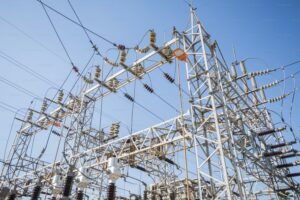The debate over rising power costs in Andaman & Nicobar Islands has intensified, with Member of Parliament Bishnu Pada Ray urging the Joint Electricity Regulatory Commission (JERC) to defer any proposed electricity tariff hike until a central subsidy mechanism is finalised and quality-of-supply benchmarks are met.
In a detailed communication addressed to JERC, the MP underscored the economic challenges facing islanders due to the region’s unique dependency on diesel-based generation. With fuel costs ranging between ₹85-₹95 per litre, the actual cost of generating power runs between ₹22-₹28 per unit, far above the national average. A sudden tariff hike, Ray cautioned, would place unbearable financial stress on households, small businesses, the fisheries sector, and the islands’ tourism-driven economy.
The MP highlighted that he has already raised the issue with the Prime Minister, Home Minister, Finance Minister, and the Minister of Power, seeking a dedicated central grant to bridge the inherent cost disadvantages of the islands’ power supply. He stressed that before passing the burden onto consumers, the Electricity Department must first meet the quality-of-supply standards prescribed by JERC. Frequent outages, load-shedding, and voltage fluctuations, he argued, are already straining island households and businesses.
Ray’s appeal comes amid mounting opposition from residents and civil society. A recent JERC public hearing in Sri Vijaya Puram revealed sharp criticism of the Administration’s power policies. Participants accused the Electricity Department of poor planning, stalled renewable energy projects, and mismanagement, warning that higher tariffs would only worsen public distrust.
Business leaders at the hearing argued that commercial establishments had long been carrying an unfair burden, effectively subsidising departmental inefficiencies. Social activists pointed to repeated failures to execute long-promised hydropower, LNG, tidal, and wind projects, while residents complained of unreliable smart meters, unexplained billing spikes, and damage to appliances caused by fluctuating voltage.
Against this backdrop, Ray requested JERC to take three key steps before considering tariff increases:
Defer any hike until a central subsidy is finalised.
Ensure compliance with quality-of-supply benchmarks.
Conduct wider stakeholder consultations, including elected representatives, civil society, and trade bodies.
He reiterated that tariff policies must balance economic realities with public welfare, aligning with constitutional principles that prioritise the well-being of citizens.
The JERC is expected to factor in both the Administration’s submissions and widespread public opposition before issuing its final order on the tariff petition.





